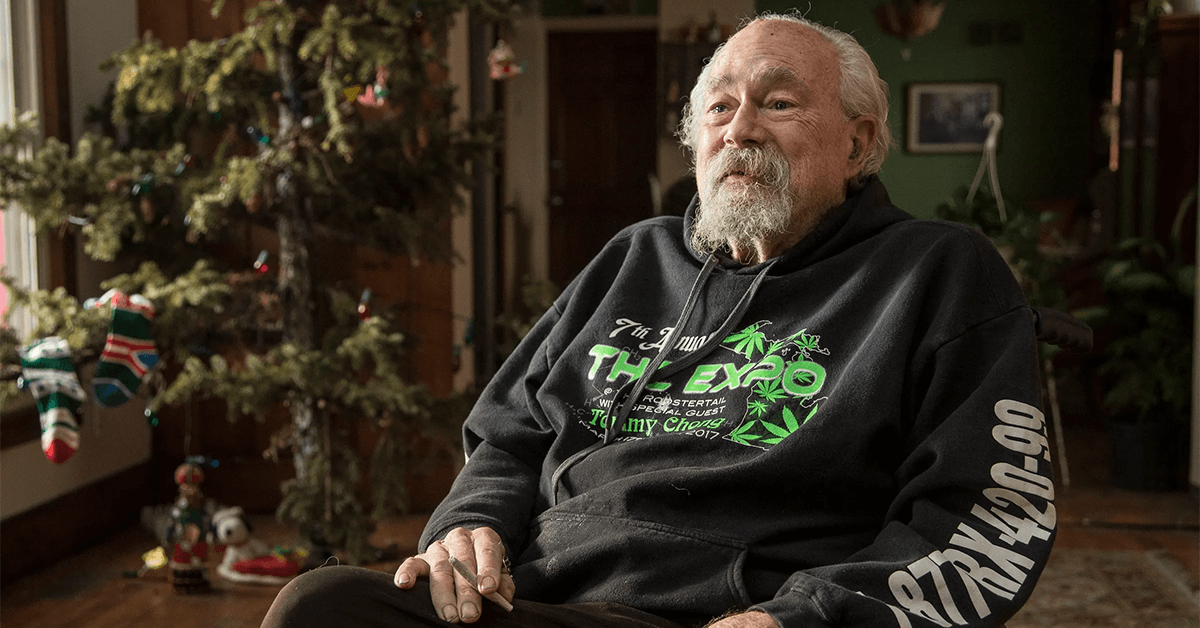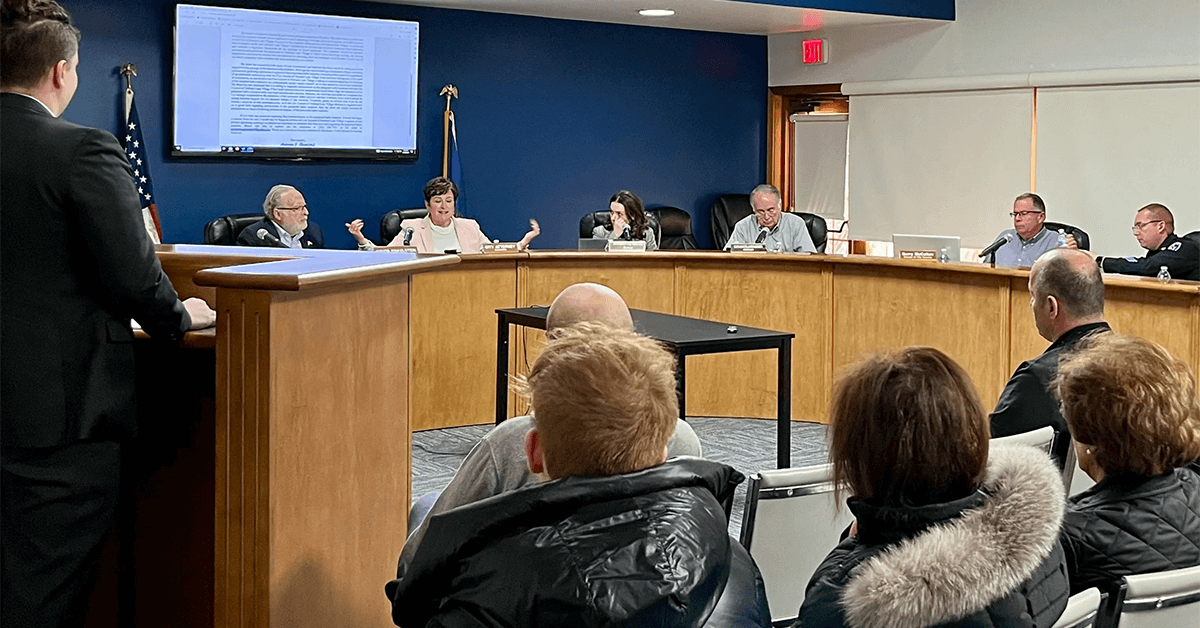John Sinclair: A Legacy of Music, Activism, and the Fight for Cannabis Legalization

John Sinclair, the influential poet, political activist, and beacon of the counterculture movement who ardently championed for cannabis reform, passed away on Tuesday at the age of 82 due to congestive heart failure. Sinclair, a Flint, Michigan native, was renowned for his role as the manager of the politically charged rock band MC5 and as a co-founder of the White Panther Party, an anti-racist group aligning with the principles of the Black Panther Party. His death marks the end of an era for those who admired his tireless advocacy for cannabis legalization and his profound impact on American music and civil rights.
Sinclair's activism was not just limited to his music management or political affiliations; he was a central figure in the push for cannabis reform. Arrested in 1969 for the possession of two marijuana joints, his sentencing to 10 years in prison became a pivotal moment, sparking widespread protests. The most notable of these was the 1971 freedom rally in Ann Arbor, attended by notable figures like John Lennon, Yoko Ono, Stevie Wonder, and Allen Ginsberg, drawing a crowd of 15,000 supporters. This event not only highlighted the draconian nature of marijuana laws at the time but also played a crucial role in his release from prison just two days after the rally.
Sinclair's influence extended beyond his advocacy; he was deeply embedded in the cultural and musical landscape of the 1960s and 70s. Managing MC5, he was at the helm during the creation of their groundbreaking album "Kick Out the Jams," a work that remains a seminal piece in the history of rock music. Despite their eventual split, Sinclair's impact on the band and the music scene at large was undeniable, blending his radical political views with a profound understanding of American music, particularly jazz and rhythm and blues.
Beyond his immediate impact on music and activism, Sinclair's legacy is intertwined with the broader movement towards cannabis legalization. He lived to see marijuana legalized in Michigan in 2018, a moment that represented the culmination of decades of advocacy work. His contributions to the alternative press, including writing for Detroit's Fifth Estate and founding the Ann Arbor Sun, cemented his status as a thought leader in the counterculture movement.
Sinclair's dedication to his cause and his charismatic leadership left an indelible mark on those who knew him and worked alongside him. Described as persuasive, charismatic, and a father figure to many in the movement, he inspired a generation of activists and musicians alike. His loss is felt deeply by the community, especially in Detroit, where he was a towering figure in the countercultural landscape.
The upcoming Ann Arbor Hash Bash, an event Sinclair helped to establish and which has become a staple in the cannabis reform calendar, will serve as a partial remembrance for the activist. Scheduled speakers include politicians, activists, and Sinclair's ex-wife, photographer Leni Sinclair, highlighting his lasting influence on the movement.
Sinclair's contributions to the fight for cannabis legalization, his role in the counterculture movement, and his impact on American music are immeasurable. As the community reflects on his life and legacy, his spirit and dedication to change continue to inspire those fighting for justice and reform. John Sinclair leaves behind a legacy that transcends his work, embodying the spirit of a movement that continues to evolve and impact society in profound ways.
The Bloom Brand Partners with Michigan's Yield Distribution to Offer Premium Cannabis Products

The Bloom Brand, recognized for its advancements in cannabis concentrates and vape technology, has announced a strategic alliance with Michigan's premier cannabis distributor, Yield Distribution. This partnership will see Yield Distribution entering an exclusive agreement with Exhale Systems, Bloom's producer and license partner, to market and distribute Bloom products throughout Michigan. This collaboration aims to enhance Michigan's cannabis sector by merging expertise, innovation, and a shared commitment to high standards.
Founded in 2014, Bloom has consistently led in the innovation within the cannabis industry, receiving recognition for its high-quality vape concentrates and pioneering consumption technologies designed to mimic the experience of flower consumption. Bloom has established a significant presence in major markets, including California, Illinois, New York, and New Mexico, distinguishing itself as a beacon of excellence and innovation. The company's Surf vaping system, in particular, has been highly regarded, becoming the most popular all-in-one vape device in New Mexico and the second top-selling device of its kind in California.
David Vartolomeu, Director of Business Development at Bloom, expressed the company's strategic approach to partnerships, highlighting the importance of aligning with partners that share Bloom's dedication to quality and excellence. Vartolomeu praised Yield's commitment to its values, strong dispensary networks, and enthusiasm for expanding Bloom's presence in the Midwest.
Under this partnership, Yield Distribution will use its extensive retail network and market insights to introduce Bloom's acclaimed Classic line of concentrates to Michigan's cannabis market. This line features renowned strains such as Maui Wowie, Pineapple Express, King Louie, and Grandaddy Purple (GDP), offering consumers a diverse selection of high-quality options. Additionally, Bloom's seasonal Live and Live Rosin lines will bring a variety of exotic strains to Michigan consumers, with all products available in both 0.5g and 1.0g formats.
Aaron Lanctot, CEO of Yield Distribution, shared his enthusiasm for the partnership, emphasizing the shared values and commitment to providing exceptional cannabis experiences that define both companies. He noted that Bloom's dedication to quality, innovation, and customer satisfaction makes them a perfect partner for Yield, reflecting a strong cultural alignment.
As this partnership progresses, Michigan's cannabis consumers can look forward to an expanded offering of premium cannabis products, potentially reshaping the state's cannabis vape market with new standards of quality and selection.
Michigan Woman Arrested for Attempting to Smuggle Cannabis from Boston to London

In a striking incident at Boston Logan International Airport, a woman from Michigan found herself embroiled in a legal quandary following her attempt to smuggle a substantial amount of cannabis to London. Nalexus Palmer, 28, was arrested and held on bail after Massachusetts State Police intercepted her with 74 pounds of vacuum-sealed cannabis, valued at nearly $400,000, intended for illicit distribution in the U.K.
Palmer, who had traveled from Detroit to Boston with the goal of flying to London, faced charges for trafficking cannabis weighing between 50 and 100 pounds. The arrest took place on a Saturday night, shortly after U.S. Customs and Border Protection agents flagged the suspicious cargo. Embedded within two large suitcases filled with the drug were Apple AirTags, presumably used to track the shipment's journey across borders.
The narrative unfolded as Palmer claimed ignorance of the suitcase's contents, alleging that an unidentified woman had delivered them to her, following arrangements made by an unnamed man. This individual, whom Palmer stated she had met four years prior in Atlanta, reportedly facilitated monetary transactions through Zelle and Cash App for unspecified purposes, promising further compensation upon her arrival in London.
This incident underscores the stark legal contrasts in cannabis regulation between jurisdictions. While possession of cannabis is legal in both Michigan and Massachusetts, its trafficking, especially across international borders, remains strictly prohibited. Suffolk District Attorney Kevin Hayden emphasized this distinction, warning against the significant risks involved in transporting large quantities of cannabis across state and international lines.
The court has since set Palmer's bail at $3,000, imposing conditions that include the surrender of her passport and a restriction from entering Logan Airport unless for legitimate travel. A scheduled probable cause hearing on May 24th awaits further developments in this case.
This case vividly illustrates the ongoing challenges and complexities surrounding cannabis laws, highlighting the severe consequences of trafficking attempts. Despite varying degrees of legalization within the United States, the international transportation of cannabis continues to be met with stringent enforcement and severe penalties.
Ann Arbor to Host 53rd Hash Bash in Tribute to Cannabis Reform Pioneers

Ann Arbor is gearing up for the 53rd Hash Bash on Saturday, an event that has been a cornerstone in the advocacy for cannabis reform since its inception over five decades ago at the University of Michigan Diag.
The event will commence at noon on April 6th with local musician Laith Al-Saadi playing the national anthem on guitar. Al-Saadi will also perform alongside John Sinclair, providing an engaging musical highlight, according to event organizer Jamie Lowell.
This year, the Hash Bash will pay tribute to the figures who have played pivotal roles in Michigan's cannabis reform movement. Lowell announced an impressive lineup of speakers, including Sinclair and Adam Brook, famously known as "Mr. Hash Bash."
The origins of Hash Bash date back to April 1972, following a freedom rally that was partly organized by musician John Lennon to support Ann Arbor poet John Sinclair. Sinclair had been imprisoned for possession of cannabis, sparking significant outcry. His release, following the overturning of Michigan's felony cannabis law, led to the first Hash Bash and Ann Arbor's subsequent decriminalization of cannabis.
The event has been a staple every first Saturday in April, drawing thousands to Ann Arbor alongside the Monroe Street Fair.
This year's roster of speakers includes seasoned activists such as Leni Sinclair, Chuck Ream, and Tim Beck, alongside representatives from the Michigan Psychedelic Society and the Washtenaw County Prosecutor's Office, among others. Politicians including Sen. Jeff Irwin, U.S. Rep. Debbie Dingell, and state Rep. Jimmie Wilson Jr., as well as officials from Gaylord and Pontiac, are slated to speak.
Michael Thompson, who served 25 years for cannabis-related charges, will share his story, underscoring the ongoing legal challenges faced by individuals over cannabis.
The theme will also remember late activists Rick Thompson, Brad Lemke, Gersh Avery, and Rhory Gould, honoring their contributions to the movement.
The event will conclude with a performance from Tom Wall and Cosmic Knot, featuring a unique "plant jamming" session. The Student Association for Psychedelic Studies has been credited with obtaining the necessary permits for the event.
Attendees will have the opportunity to visit educational booths by various organizations, including the Great Lakes Expungement Network, ensuring a day of learning and advocacy. To maintain the integrity of the event, the sale of products on site is prohibited.
A Strategic Partnership Pioneering Insurance Solutions for Cannabis Businesses

Conifer Holdings, Inc. (NASDAQ: CNFR), a leader in the field of specialty insurance, has recently announced a groundbreaking strategic partnership with Palomar Holdings, Inc. (NASDAQ: PLMR). This collaboration is set to revolutionize insurance offerings for the cannabis industry, emphasizing the creation of comprehensive coverage solutions specifically tailored to meet the unique needs of cannabis businesses. Leveraging the strengths of both companies, this partnership aims to navigate the complex landscape of cannabis legalization and the specific challenges it presents to entrepreneurs and cultivators within the sector.
The partnership employs the financial strength and reliability of Palomar Specialty Insurance Company (PSIC) and Palomar Excess and Surplus Insurance Company (PESIC), both of which boast an "A-" (Excellent) rating from A.M. Best, indicating their strong capability to meet policyholder obligations. This collaboration signifies a vital development in the cannabis industry, highlighting an acknowledgment of the growing demand for insurance products that can address the sector's distinctive risks and opportunities.
Nick Petcoff, CEO of Conifer, expressed enthusiasm about the partnership, underscoring the shared commitment to innovate and deliver solutions that are not just comprehensive but also adaptable to the evolving demands of the cannabis industry. "We are excited to join forces with Palomar to provide cannabis businesses with the comprehensive insurance coverage they need to thrive in today's dynamic market," Petcoff stated, emphasizing the goal of pioneering solutions that cater specifically to the needs of the cannabis sector.
Conifer Holdings, Inc., with its base in Michigan, has established itself as a significant player in the property and casualty insurance domain, offering specialized coverage for both commercial and personal lines. Palomar Holdings, Inc., encompasses a suite of subsidiaries, including PSIC and PESIC, specializing in serving a broad spectrum of clients across various niche markets.
This partnership emerges at a pivotal moment for the cannabis industry, characterized by rapid growth and increasing acceptance across states and countries for both medical and recreational use. Despite the potential, the industry faces numerous challenges, from navigating complex government regulations and product liability issues to addressing the specifics of property protection. The collaboration between Conifer and Palomar represents a forward-thinking approach to mitigating these risks, providing cannabis businesses with the necessary tools to secure their operations against a backdrop of uncertainty and stringent regulatory landscapes.
Moreover, the venture into cannabis industry insurance highlights the adaptability and responsiveness of insurance providers to emerging markets, despite facing hurdles such as federal regulations and the nascent stage of actuarial models specific to cannabis-related risks. The strategic alliance between Conifer and Palomar is a testament to the evolving landscape of industry-specific insurance solutions, offering a beacon of support to cannabis entrepreneurs navigating the complexities of their trade.
For those interested in the financial side of the cannabis industry, an exclusive opportunity awaits. By signing up through our Robinhood referral link, you might secure a free portion of Conifer Holdings stock, making you a part of the groundbreaking journey of companies like Conifer in the cannabis sector. Explore this chance and potentially start your investment journey in the burgeoning cannabis market.
Community Concerns Lead to Withdrawal of Cannabis Retail Proposal in Orchard Lake

Orchard Lake Village, a quaint and serene community in Oakland County, Michigan, found itself at the crossroads of a significant and potentially transformative decision. The issue at hand was a proposed ordinance to permit a cannabis retail operation within its boundaries, a move mirroring challenges faced by other small communities in the county. This development was brought into the spotlight during a special meeting convened on a Wednesday evening, attended by over 40 residents, signaling a high level of public interest and concern.
Meeting Dynamics and Public Engagement
The meeting was notable not just for its attendance but also for the decorum and civility with which discussions were conducted, a point of pride mentioned by Mayor Norm Finkelstein. He remarked on the unprecedented turnout and the respectful manner in which residents participated in the democratic process. The assembly was presented with a detailed explanation of the proposed ordinance by Mary M. Kucharek, the city's attorney, who laid out Orchard Lake Village's possible courses of action. These included adopting the ordinance as presented, amending it, drafting an alternative ordinance for voter consideration, or allowing a petition drive to proceed. A critical legal boundary was underscored: city officials could not use municipal funds to campaign either for or against the proposal.
Stakeholder Perspectives
Representing the Belleville-based Blue Sky Cannabis Co., attorney Anderson Grandstaff articulated the stance of his client, Sam Pernick, the business owner aiming to establish the cannabis shop. The city council engaged in a rigorous inquiry, delving into the specifics of the business plan, including staffing, location, and the degree of influence Pernick would exert over the ordinance. Grandstaff's responses highlighted the potential for amending the ordinance, though he emphasized the indispensability of certain elements, such as the scoring system for permit issuance.
The discussion also ventured into the realm of broader implications, reflecting on the experiences of Rochester, Birmingham, and Keego Harbor — three other Oakland County cities that had recently rejected similar proposals. This historical context set the stage for a vibrant public comment period, where concerns about traffic, boating safety, and cannabis access were voiced, alongside a unifying theme of protecting children from increased drug exposure.
Community Reactions and Concerns
Residents took the opportunity to express a spectrum of opinions and anxieties. Joyce Herman questioned the tangible benefits to the city and its inhabitants, leading to a debate on the fiscal returns to the community versus the gains accruing to the business owner. Suzanne Bell and Carolyn Pender highlighted the need for vigilance and proactive community organizing to counteract any future ballot proposals. The discussion touched upon the motivations of a Belleville-based business owner eyeing Orchard Lake Village for cannabis sales, sparking debate over the necessity and desirability of such an enterprise in a community prized for its recreational ambiance.
Turning Point and Withdrawal
A pivotal moment arrived the morning after the meeting when Grandstaff communicated his client's decision to retract the ordinance change proposal, halt the petition drive, and abandon the pursuit of a retail location in Orchard Lake Village. This announcement marked a significant turning point, reflecting perhaps the efficacy of community engagement and the persuasive power of public opinion.
Wider Context and Future Directions
The Orchard Lake Village episode is emblematic of a broader narrative unfolding across Michigan, as communities grapple with the opportunities and challenges posed by cannabis legalization. The episode sheds light on the intricacies of local governance, the power of public discourse, and the balancing act between business interests and community values.
Broader Implications and Legal Nuances
The Orchard Lake Village scenario underscores a growing trend across Michigan and the United States: the complex navigation required by municipalities in addressing cannabis legislation. This incident provides a case study in the nuances of local governance, especially regarding issues that elicit strong public sentiment and legal intricacies. The discussions highlighted the delicate balance between respecting the autonomy of business ventures and safeguarding community standards and well-being.
Legal Framework and Municipal Autonomy
One of the critical aspects of this situation was the legal framework within which municipalities operate. The options laid out by the city attorney presented a spectrum of responses, each with its legal and social implications. This scenario underscored the autonomy municipalities have in crafting local ordinances that reflect the community's values while adhering to state laws. The prohibition against using city funds for campaigning on such issues further emphasizes the legal boundaries within which civic discourse occurs.
Community Engagement and Democratic Processes
The active participation of Orchard Lake Village residents in the public meeting and the subsequent discussions exemplified the essence of community engagement in democratic processes. The ability of citizens to voice concerns, ask questions, and directly engage with proposals affecting their community is a cornerstone of local governance. This event highlighted the importance of transparent, open forums that allow for a wide range of voices to be heard and considered.
Economic Considerations and Community Benefits
The debate over the proposed cannabis retail operation brought to the fore questions about economic benefits, tax revenue, and the distribution of financial gains. While the potential for increased tax revenue was noted, residents and officials critically assessed who the primary beneficiaries of such an operation would be. This evaluation reflects broader considerations in cannabis legislation debates nationwide, where economic incentives are weighed against social and safety concerns.
The Power of Public Sentiment
The withdrawal of the cannabis retail proposal in the wake of public opposition illustrates the significant impact of community sentiment on policy decisions. The concerns raised by residents about traffic, safety, and youth access to cannabis played a crucial role in shaping the outcome. This instance demonstrates how public opinion can influence business decisions and legislative outcomes, emphasizing the power of collective community action.
Looking Forward: Lessons Learned and Future Challenges
The Orchard Lake Village experience offers several lessons for other municipalities facing similar proposals. It highlights the importance of informed public discourse, the need for comprehensive understanding of legal and economic implications, and the value of community consensus-building. As cannabis legislation continues to evolve, the experiences of communities like Orchard Lake Village will undoubtedly inform future debates and policy decisions.
This case also points to the ongoing challenges as more communities navigate the complexities of integrating cannabis businesses into their local economies and social fabrics. The balance between fostering economic development, ensuring public safety, and maintaining community character will remain central to these discussions.
Conclusion
The Orchard Lake Village cannabis ordinance proposal and its subsequent withdrawal represent a microcosm of the broader dialogues happening across communities in Michigan and beyond. Through this detailed examination, it becomes evident that the intersections of law, community engagement, economic considerations, and public sentiment are complex and multifaceted. The proactive and engaged response of the Orchard Lake Village community serves as a powerful example of how civic participation and dialogue can shape the fabric of local governance and community life.


 Helpful Links
Helpful Links